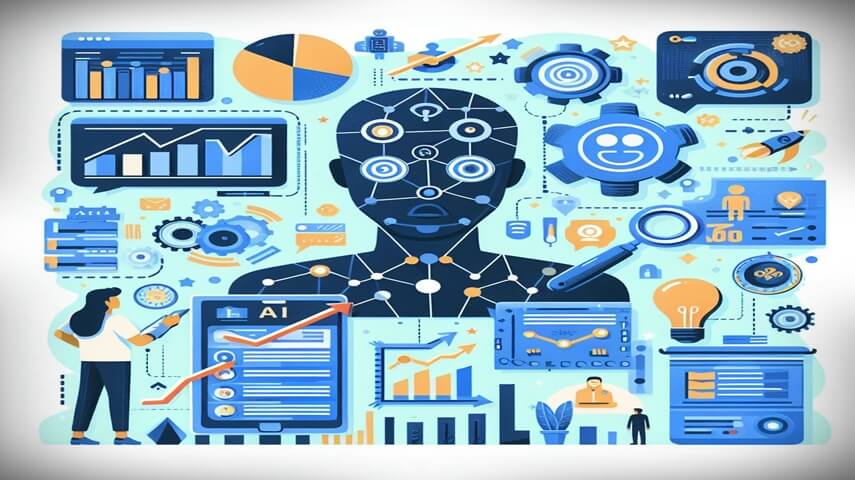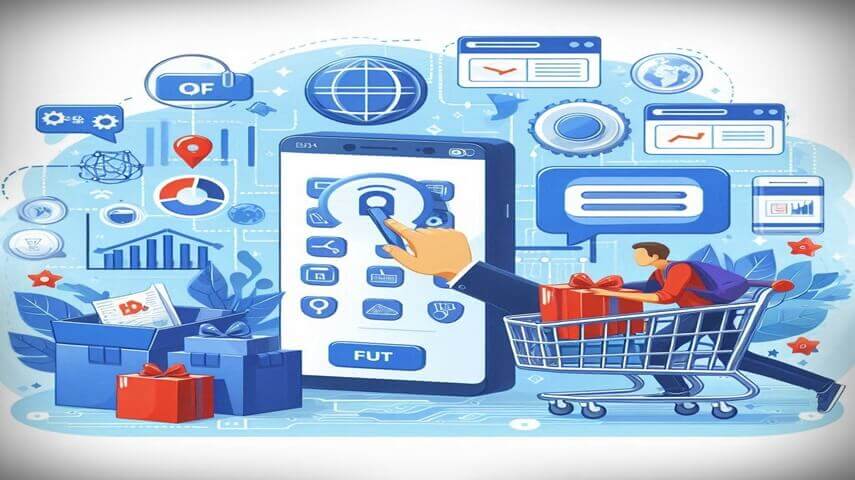In the realm of modern marketing, harnessing the potential of AI strategies has become a game-changer for businesses seeking to enhance conversions and maximize ROI. AI-driven tools and techniques offer unparalleled capabilities, from data-driven insights and predictive analytics to personalized customer experiences and automated campaign optimizations. By leveraging AI strategies, marketers can unlock new levels of precision in targeting, engagement, and conversion optimization, ultimately driving revenue growth and competitive advantage in today’s digitally-driven landscape.
Personalized marketing has emerged as a powerful strategy for businesses to cut through the noise and connect with their target audience on a deeper level. With the advent of Artificial Intelligence (AI) technologies, personalized marketing has taken on a whole new level of sophistication, enabling businesses to tailor their marketing efforts to individual preferences, behaviors, and needs. In this comprehensive guide, we will explore the transformative impact of AI-driven personalized marketing strategies on customer engagement and conversions.
Understanding Personalized Marketing
Personalized marketing is all about delivering tailored messages, content, and experiences to individual customers based on their unique characteristics and preferences. It goes beyond generic one-size-fits-all marketing campaigns and aims to create meaningful interactions that resonate with customers on a personal level. By leveraging data analytics, segmentation, and AI-powered tools, businesses can craft highly targeted and relevant marketing campaigns that drive engagement, foster brand loyalty, and ultimately lead to higher conversion rates.
The Role of AI in Personalized Marketing
AI technologies such as machine learning, natural language processing (NLP), and predictive analytics are revolutionizing the way marketers approach personalized marketing. These AI-driven tools enable marketers to:
1. Data Analysis and Customer Insights
AI algorithms can analyze vast amounts of customer data, including browsing behavior, purchase history, social media interactions, and demographic information. By mining this data, marketers gain valuable insights into customer preferences, interests, and pain points, allowing them to create hyper-targeted marketing campaigns.
2. Segmentation and Targeting
AI-powered segmentation techniques enable marketers to divide their audience into distinct segments based on shared characteristics such as demographics, behavior, and purchase intent. This segmentation allows for more personalized messaging and content delivery tailored to each segment’s unique needs and preferences.
3. Predictive Personalization
AI algorithms can predict future customer behavior and preferences based on historical data patterns. By leveraging predictive analytics, marketers can anticipate customer needs and proactively deliver personalized recommendations, offers, and content that resonate with individual customers, driving engagement and conversions.
4. Automation and Scalability
AI-powered automation streamlines marketing processes, from campaign creation and optimization to customer interactions and follow-ups. Automated workflows ensure consistent and timely communication with customers across multiple channels, enhancing efficiency, scalability, and overall campaign performance.
AI Strategies for Enhanced Engagement and Conversions
Now let’s delve deeper into specific AI strategies that can unlock personalized marketing power and drive engagement and conversions:
1. Dynamic Content Personalization
AI-powered content personalization involves dynamically tailoring website content, email campaigns, and ads based on individual user preferences, behavior, and interactions. By delivering relevant and timely content, businesses can capture user attention, increase engagement, and encourage desired actions such as purchases or sign-ups.
2. Chatbot Interactions and Customer Support
AI-driven chatbots provide instant and personalized customer support, answering queries, providing product recommendations, and guiding users through the buying journey. Chatbots enhance user experience, reduce response times, and drive conversions by addressing customer needs in real time.
3. Behavioral Targeting and Retargeting
AI algorithms analyze user behavior and intent signals to deliver targeted ads, offers, and recommendations across digital channels. Behavioral targeting ensures that marketing messages are highly relevant and timely, increasing the likelihood of conversions and customer engagement.
4. Predictive Lead Scoring and Nurturing
AI-powered predictive lead scoring helps prioritize leads based on their likelihood to convert, allowing marketers to focus their efforts on high-value prospects. AI-driven lead nurturing campaigns deliver personalized content and interactions to move leads through the sales funnel, ultimately driving conversions and revenue.
5. Personalized Product Recommendations
AI algorithms analyze customer purchase history, browsing behavior, and preferences to generate personalized product recommendations. By showcasing relevant products to each customer, businesses can increase cross-selling and upselling opportunities, driving revenue growth and customer satisfaction.
6. Social Media Listening and Engagement
AI-powered social media listening tools monitor conversations, trends, and sentiment across social platforms. By analyzing social data, businesses can identify customer needs, respond to feedback, and engage with customers in meaningful ways, building brand loyalty and advocacy.
Case Studies: Real-World Examples of AI-Powered Personalized Marketing Success
Let’s take a look at some real-world case studies showcasing the effectiveness of AI-powered personalized marketing strategies in driving engagement and conversions:
Case Study 1: E-commerce Retailer Boosts Sales with Personalized Recommendations
An e-commerce retailer implemented AI-driven recommendation engines that analyzed customer behavior and preferences to deliver personalized product recommendations. As a result, the retailer saw a significant increase in average order value, repeat purchases, and overall sales revenue.
Case Study 2: SaaS Company Improves Conversion Rates with Predictive Lead Scoring
A Software-as-a-Service (SaaS) company utilized AI-powered predictive lead scoring to identify high-value prospects and prioritize sales efforts. By focusing on leads with the highest conversion potential, the company achieved a 30% increase in conversion rates and shortened sales cycles.
Case Study 3: Travel Agency Enhances Customer Experience with Chatbot Support
A travel agency implemented AI-powered chatbots to provide personalized travel recommendations, answer customer queries, and assist with bookings. The chatbots improved customer satisfaction, reduced response times, and led to a 20% increase in online bookings.
Overcoming Challenges and Ensuring Ethical AI Practices
While AI offers immense potential for personalized marketing, businesses must navigate challenges such as data privacy, algorithm biases, and ethical considerations. It’s essential to prioritize data security, transparency, and fairness in AI algorithms to build trust with customers and maintain brand reputation.
Conclusion: Embracing AI for Personalized Marketing Success
In conclusion, AI-powered personalized marketing strategies have the potential to revolutionize customer engagement and drive conversions for businesses across industries. By leveraging AI technologies such as data analysis, segmentation, predictive personalization, and automation, marketers can create highly targeted and impactful campaigns that resonate with customers on an individual level.
Case studies and real-world examples demonstrate the tangible benefits of AI-driven personalized marketing, from increased sales and revenue to improved customer satisfaction and loyalty. As businesses continue to embrace AI innovation, it’s crucial to uphold ethical AI practices and prioritize customer trust and transparency in personalized marketing initiatives.
By unlocking the full potential of AI strategies, businesses can achieve sustained success in today’s competitive digital landscape.




